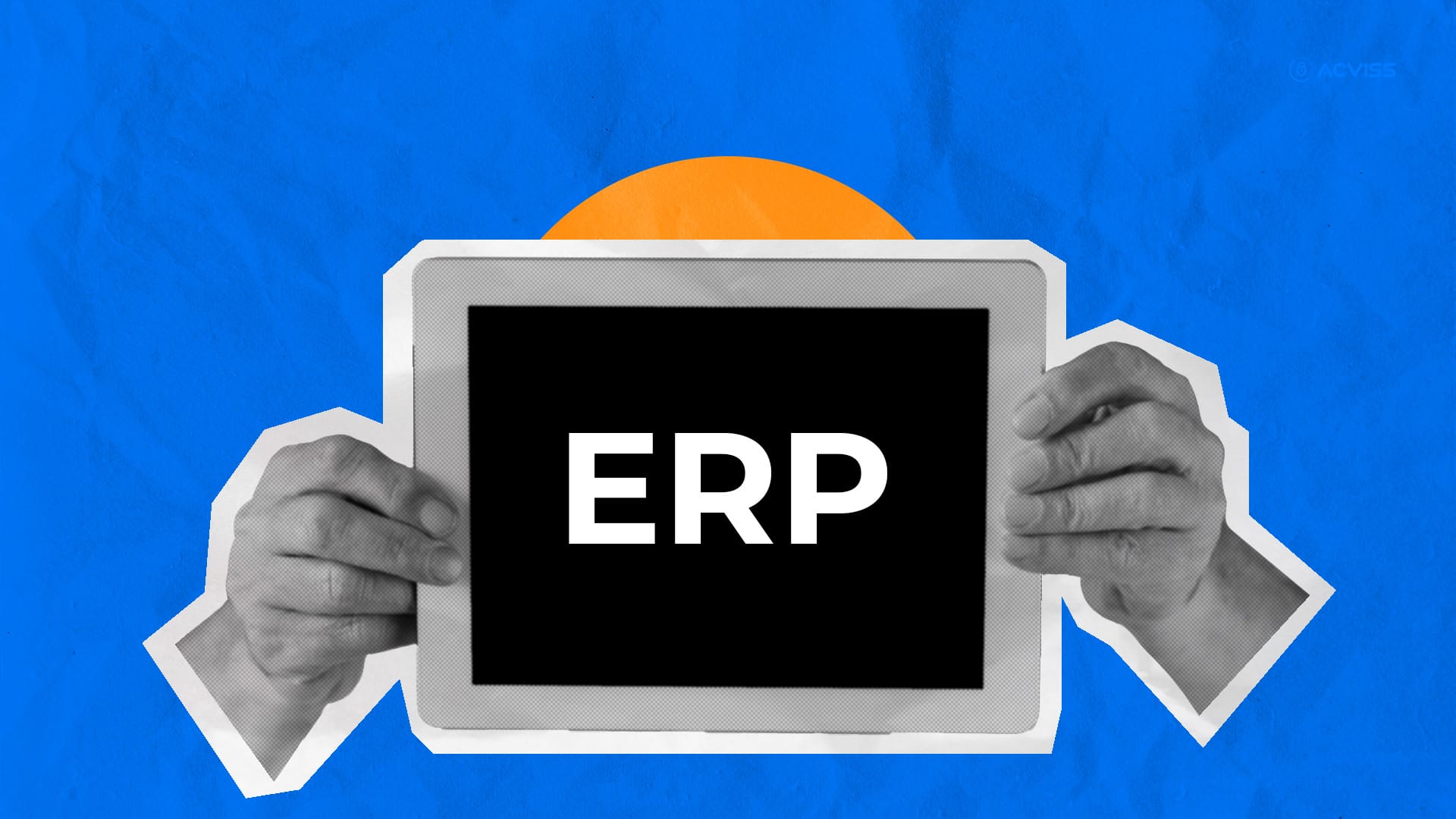7 Benefits of Using an ERP System for Manufacturers

As a manufacturer, you will know how dynamic and competitive the manufacturing industry is, and thus, gaining a competitive edge lies beyond just producing quality products. Almost every manufacturer faces countless challenges daily, from production planning to supply chain management, resource allocation, and quality control. Hence, to stay competitive, you need to come up with an agile and efficient approach that can optimise all operations in your manufacturing unit.
That said, your ideal recourse is to adopt cutting-edge solutions that can streamline and increase the efficiency of all processes, from inventory and supply chain managementto financial planning and beyond. One such tool that has the potential to revolutionise the manufacturing industry is Enterprise Resource Planning (ERP) systems- the digital backbone of modern manufacturing firms. Whether running a small operation or overseeing a large industrial enterprise, ERP for manufacturers can provide the structure and insight needed to thrive in a competitive landscape.
In this article, you can explore the key perks manufacturers can get from using ERP systems. In addition, we will dive into the role of ERP in manufacturing and compare the top manufacturing ERP systems to help you find the best fit for your business.
ERP Systems: Their Role in the Manufacturing Industry
At its core, manufacturing ERP systems are integrated software solutions designed to handle the complex needs of manufacturing businesses. These systems can integrate, manage, and automate a wide range of business processes, including inventory control, production planning, human resources, accounting, and supply chain management.
For manufacturers, ERP systems go beyond basic operations to offer detailed insights and data-driven analytics. These systems centralise information from every department, making communication, managing and analysing data, coordinating resources, meeting production deadlines, and reducing costs easier. Moreover, leveraging industrial ERP software can achieve a 360-degree view of their entire operation, from raw materials procurement to final product shipment, providing real-time production planning data and improving overall productivity.
Whether you're involved in mass production, job-shop manufacturing, or any other type of production process, an ERP solution can help optimise each step, ensuring your business remains agile, responds swiftly to market changes, optimise manufacturing resources, and, thus, stay competitive in a global market.
7 Benefits of ERP Systems for Manufacturers
Implementing ERP solutions in a manufacturing environment can significantly improve efficiency, accuracy, and overall performance. Let’s dive in and explore the seven major benefits of ERP systems for manufacturers:
1. Improved Production Planning and Scheduling
For successful production planning and scheduling, manufacturers must get real-time access to all their business information. With real-time data on inventory levels, equipment availability, and workforce capacity, manufacturers can plan production runs more efficiently.
ERP systems can provide manufacturers with 24/7 access to the needed business information and intelligence in a single click, regardless of their location. Therefore, with this manufacturing software, you can minimise downtime and avoid bottlenecks by ensuring the right materials and resources are available when needed.
2. Inventory management

Another aspect of any successful manufacturing business is effective inventory management, as excess inventory can end up tying capital, and insufficient inventory can result in production delays. By leveraging ERP solutions, manufacturers can easily optimise inventory management. Even 91% of companies reported that deploying ERP systems helped them optimise their inventory levels.
How does a manufacturing ERP contribute to effective inventory management?
The software can help you with inventory tracking, i.e., tracking the movement of raw materials, work-in-progress goods, and finished goods in real-time. Whenever these goods fall below a certain threshold, your ERP system will generate purchase orders, ensuring your firm doesn’t run out of essential materials. This effective management of inventory further reduced inventory carrying or storage costs.
3. Enhanced Supply Chain Management
In the manufacturing industry, an efficient and well-managed supply chain can make or break a business. ERP systems designed for the manufacturing industry play a vital role in enhancing supply chain management by providing real-time visibility into the movement of goods and materials.
Manufacturers can better manage supplier relationships, track shipments, forecast demand, and optimise inventory, reducing lead times and inventory costs. By having full transparency and traceability over the supply chain, you can also mitigate risks and respond quickly to disruptions.
4. Increases Cost Efficiency

Are you looking for ways to elevate cost efficiency for your manufacturing operations? Implementing industrial ERP software can help. In a survey, 62% of respondents stated that their operational costs reduced significantly after implementing cutting-edge ERP systems.
That said, a manufacturing ERP system is designed to optimise manufacturing resource planning and allocation and reduce waste, ultimately increasing cost efficiency.
This software will provide the tools needed for cost allocation, budget management, and variance analysis. Talking about resource allocation, ERP can provide real-time visibility into resource availability and usage, leading to labour optimisation, material efficiency, and better equipment utilisation. In addition, you can monitor your expenses and optimise processes to reduce overall project costs.
5. Better Financial Management
ERP systems are not just about operations and production; they also provide robust tools for financial management. Integrating financial data with production and supply chain information helps you gain a clear picture of costs, revenues, and profitability. This increased visibility into your manufacturing firm’s financial aspects further helps in budgeting, forecasting, and reducing financial risks.
6. Boosts Productivity

Productivity is the lifeblood of manufacturing operations, and 78% of organisations found ERP systems to improve their projects’ productivity. A manufacturing ERP system is adept at streamlining processes, maximising workforce efficiency, and facilitating automated reporting and continuous improvement.
For instance, real-time access to key performance indicators (KPIs) about workers, different operations, costs, and more can help identify inefficiencies and areas for improvement.
7. Increased Regulatory Compliance
For manufacturers operating in a heavily regulated industry, maintaining compliance with local and international standards is critical. ERP for manufacturers comes equipped with tools to track regulatory requirements, document processes, and ensure that all aspects of production adhere to the necessary standards. It helps avoid legal complications and ensures that product quality and safety requirements are met.
Comparing 5 Manufacturing ERP Systems: Knowing Their Benefits
Selecting the right ERP solution for your manufacturing business can be challenging, given the wide range of options available. Here’s a comparison of the top five best ERP tools for manufacturing, highlighting their unique features and benefits:
ERP System | Key Features | Production Planning | Supply Chain Management | Financial Management | Customisation | Ease of Use |
|---|---|---|---|---|---|---|
Comprehensive, cloud-based ERP with real-time analytics | Provides advanced production planning tools that enable real-time tracking and automation of manufacturing processes. | Offers deep insights into supply chain operations, allowing businesses to optimise logistics, procurement, and inventory. | Robust financial modules with detailed cost tracking and revenue forecasting tailored to complex operations. | Highly customisable to fit specific industry needs, though the setup may require dedicated IT resources. | Initially challenging to master but highly efficient once implemented due to its robust feature set. | |
Full-scale solution for global manufacturers | Offers efficient production planning features, perfect for discrete and continuous manufacturing environments. | Excellent supply chain capabilities that streamline procurement, supplier management, and inventory optimisation. | Outstanding financial management tools with automated reports and multi-currency handling for global operations. | Highly flexible, supporting industry-specific customisations with options for adding new modules over time. | User-friendly interface with quick navigation, ideal for companies scaling across regions and departments. | |
Specialised for industrial and equipment manufacturers | A powerful planning tool with strong automation features for scheduling, ensuring smooth operations and forecasting. | Provides real-time tracking of the supply chain, emphasising on minimising downtime and improving efficiency. | Offers comprehensive financial tools for detailed tracking of costs, margins, and profitability across operations. | Moderate customisation available, mainly designed to fit industrial needs, but may require additional modules. | Easy to navigate, especially suited for industrial users, though less intuitive for smaller manufacturers. | |
Seamless integration with Microsoft tools and analytics | Integrates smoothly with production processes, ensuring accurate planning, scheduling, and resource allocation. | Strong capabilities for managing supply chain workflows, reducing bottlenecks, and improving communication across teams. | Offers highly integrated financial tools that help track expenses, profits, and ROI in real time for accurate decision-making. | Offers a high degree of customisation, allowing manufacturers to adapt workflows and modules as needed. | Very user-friendly, especially for teams already familiar with other Microsoft tools like Excel and Outlook. | |
Built for discrete and process manufacturing | Tailored production planning for manufacturers focused on efficiency and flexibility, especially in niche sectors. | Provides comprehensive supply chain management tools that help control costs and manage supplier relationships. | Good financial management features, although more suited for small to medium-sized manufacturers with less complexity. | Customisable to meet specific manufacturing needs, though not as flexible as some larger systems. | Offers a moderately easy learning curve but might require some training to fully utilise its tools. |
All-in-All
For manufacturers to be successful, they must go beyond outdated systems, and switch to ERP systems for streamlined operations, optimised production, and improved supply chain control. Integrating all departments into one unified system improves decision-making, reduces waste and boosts profitability.
Are you looking to safeguard your products and enhance operational and supply chain transparency? Acviss Certify offers a cutting-edge product authentication solution that can be seamlessly integrated into your ERP system. With unique, non-clonable labels and digital certificates, Certify provides proof of authenticity, enabling you to build trust with customers and protect your brands from counterfeit risks. Get in touch with our experts to learn more about product authentication and how to implement it seamlessly with your existing ERP systems.
